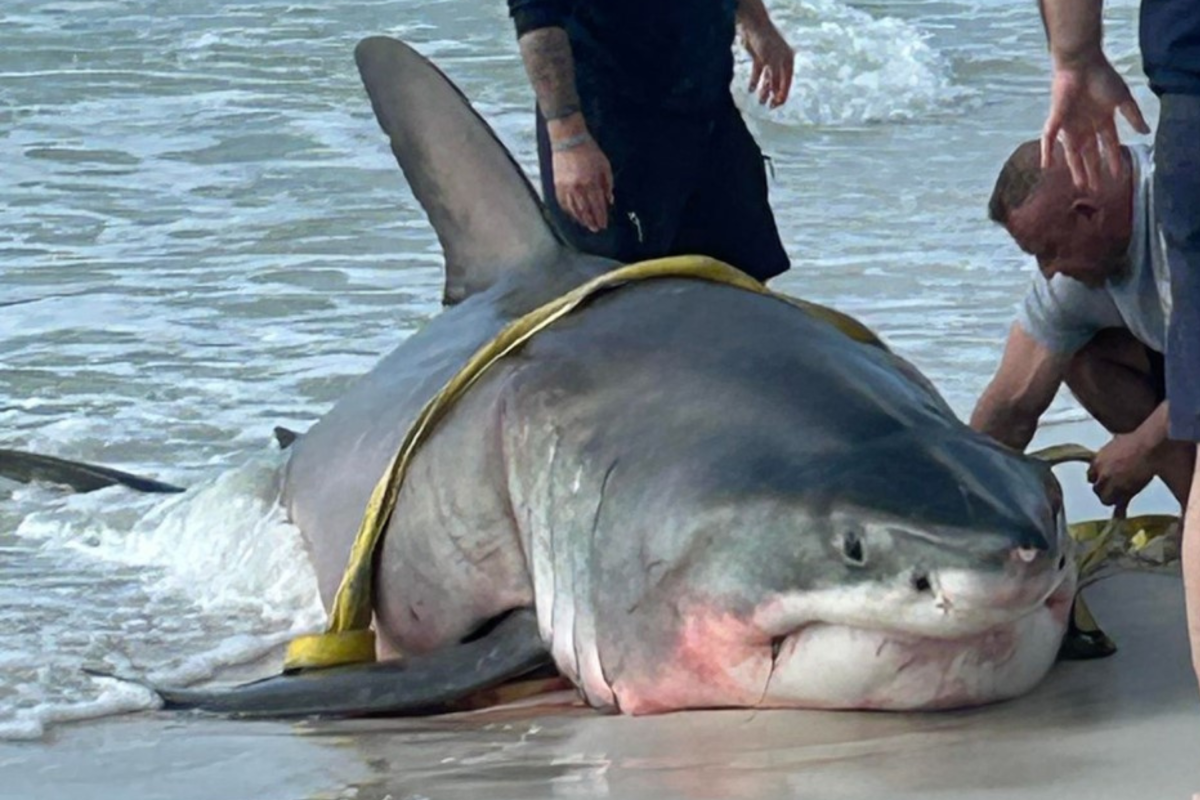A great white shark was found dead on Navarre Beach in Florida on Friday morning, and fire department officials who responded to the scene discovered that the shark was pregnant.
Navarre Beach Fire Rescue responded to the shark on the beach after receiving a call at about 7:10 a.m., according to WEAR-TV in Pensacola. Navarre Beach Fire Rescue and officials from Santa Rosa County and Gulf World Marine Institute learned that the 13-foot-long great white shark was pregnant.
It was later discovered that the shark wasn't pregnant, according to a report by WEAR News. The cause of death still hasn't been released.
There were no obvious injuries to the shark other than a few hooks in its mouth, which Navarre Beach Fire Rescue Chief Danny Fureigh said isn't out of the ordinary. Marine biology officials will conduct a necropsy to determine the cause of death.
Fureigh told Newsweek that he estimated the shark's weight at 1,500 pounds.

"It had some size to it," he said.
Finding a dead shark on the beach isn't unusual, Fureigh said. Navarre Beach Fire Rescue responds to incidents of dead marine animals such as dolphins, whales or sharks that have washed up on the beach about twice a year.
However, it was unusual that the shark was so large.
"It is unusual that a great white this size washes up on the beach," Fureigh said, adding that officials had to use a front-end loader to remove the shark from the beach.
The great white wasn't the only shark found dead on a beach this month. In early February, a pregnant porbeagle shark was found dead on a beach in Rhode Island. A necropsy was scheduled for the nearly 9-foot-long shark.
Porbeagle sharks are found in the north Atlantic Ocean and can reach up to 12 feet long. They are one of the closest living relatives to the great white.
"I gave the shark a complete review [externally] and there nothing that stood out as obvious trauma," Atlantic Shark Institute Executive Director Jon Dodd previously told Newsweek.
"There were no hooks present, no cuts or gashes and no puncture wounds. So, the hope is that the necropsy will tell us more. The reason these reviews can take awhile is that a good portion of the review requires lab work on tissue, organs...and that can often take additional weeks if nothing is evident internally."
Update 2/27/24, 10:57 a.m. ET: This article was updated with additional information.
Uncommon Knowledge
Newsweek is committed to challenging conventional wisdom and finding connections in the search for common ground.
Newsweek is committed to challenging conventional wisdom and finding connections in the search for common ground.
About the writer
Anna Skinner is a Newsweek senior reporter based in Indianapolis. Her focus is reporting on the climate, environment and weather ... Read more
To read how Newsweek uses AI as a newsroom tool, Click here.






